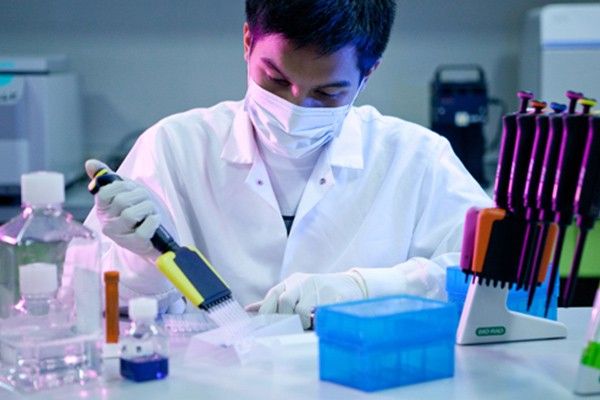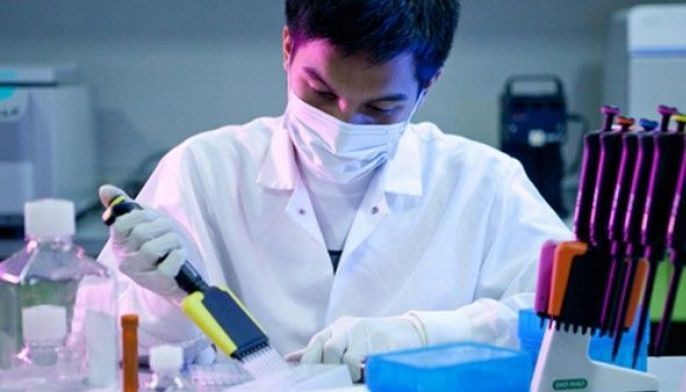DOST hopeful more 'balik scientists' will come home during Marcos Jr. admin

MANILA, Philippines — The government expects more scientists to come back from abroad through the Balik Scientist Program during the presidency of Ferdinand Marcos Jr. because of investments in the sector under President Rodrigo Duterte.
The program is a "brain gain" initiative of the Department of Science and Technology (DOST), where the government arranges for Filipino scientists, technology experts and specialists abroad to return to the country and work here.
Between 1975 — when the program started — and 2021, DOST has registered a total of 585 "balik scientists". Under the Balik Scientist Act signed by President Rodrigo Duterte in June 2018, returning experts will have more incentives such as tax and duty exemptions in the import of scientific equipment, tax-free allowances, and free medical and accident insurance.
Science and Technology Undersecretary Rowena Cristina Guevara believes that the presence of over 40 research and development (R&D) centers in different regions will attract more Filipino scientists abroad to come back home.
"Yes, [we expect more balik scientists during the Marcos administration]. These past six years, we have been investing heavily on S&T infrastructure in the sense that we have a Science for Change program, where we have already opened 42 R&D centers across the country and these are magnets for 'balik scientists' in specific fields," she told Philstar.com in a Zoom interview on June 6.
One of the goals of the Science for Change program is to build R&D centers across the country in collaboration with higher education institutions and help solve the disparity in science funding in regions.
With more centers to conduct R&D, more Filipino scientists abroad will want to do their research here, Guevara said.
Scientists for the program come from various fields in the industry, energy and emerging technologies; health sector; and agriculture, aquatic and natural resources.
Selected experts must share their expertise with a host institution, academic institution, government agency, or a local enterprise. Their terms of service are from six months to three years.
Scientists who qualify for the program must be of Filipino origin or descent, must be based abroad, must have made an outstanding contribution in their field, be in good health, and must have practiced their profession for over three years.
More funds for R&D
Putting more funds in R&D means more work for researchers, and will definitely attract more balik scientists, according to Guevara.
She explained that DOST has currently allotted up to P8 billion for research and development per year.
Philippine Nuclear Research Institute Director Carlo Arcilla, whose team has worked with at least three "balik scientists", also suggested that there should be a higher budget set aside for Science, Technology, Engineering and Mathematics (STEM) endeavors.
"It's the scientist that will create new ideas, new technologies that will help push the country [forward], otherwise, we'll just be copying what other countries do, or whatever or other nations will benefit from what our scientists are doing," he told Philstar.com in a Zoom interview on June 9.
"If you bet [on] science, you will always be lucky," Arcilla added.
Aside from pouring in more funds for R&D, the country must do more in pushing for quality STEM education which starts at the basic level, he said.
The Philippines ranked 51th place out of 132 economies in the 2021 Global Innovation Index (GII), which measures innovation performance. This is lower by one notch compared to the country's rank in the previous year's GII.
In 2013, the Philippines only had 189 researchers per 1 million people, far from the United Nations Educational, Scientific and Cultural Organization’s (Unesco’s) ideal ratio of 380 researchers for every million in a population.
RELATED: Filipino scientist wins UN award for disaster risk reduction
Why they're leaving: Contractual labor, low salaries
But having a Balik Scientist program prompts the question why Filipino scientists leave the country in the first place. Most face several challenges to doing work in science, including unfavorable contracts and low pay.
STEM (science, technology, engineering and mathematics) workers in research projects typically have contracts of service for up to three years. These contracts are renewable for five to twelve months, according to University of the Philippines environmental science researcher Justin Custado.
Custado, who is a member of an alliance of STEM graduate students and researchers in UP Diliman, said that those on project-based contracts usually don't get the benefits mandated for regular employees. Among the benefits they don't get are coverage under the Social Security System and the Philippine Health Insurance Corp., Custado told Philstar.com in a Zoom call on June 15.
He added that these contracts typically also do not have any hazard benefits for those who do fieldwork nor maternal leaves for female workers.
While the monthly pay may vary for STEM workers, Custado, a scientist for six years, disclosed that scientists with less experience can get as little as P21,000 a month.
"It’s kind of a wide range but based on what we know by experience, it’s on the lower end, especially if you compare it to other types of jobs in the industry," he said in Filipino.
Low salaries were also a problem for Dr. Denise Matias, who used to work as a research assistant at the UP Marine Science Institute, where she earned less than a call center worker.
But it was ultimately the long process of waiting for funding from the DOST for her master’s thesis that led her to seek opportunities abroad.
Matias is now a tenured professor at the Eberswalde University for Sustainable Development about 60 kilometers from Berlin and specializes in ecosystem-based transformation management. She has been based abroad for over a decade.
More than ten years ago, she applied for funding from the DOST but said her application kept getting passed around for an entire year. The department said it wasn't sure whether her master's thesis fell under environment science or molecular biology and was trying to figure out where the funding would come from.
"There was no resolution. I didn't get any funding so I told myself it would be easier to just leave the country and study abroad," Matias told Philstar.com in Filipino in a phone call on June 15.
RELATED: UP scientists to DENR exec: Expert advice is free, lab work and research need funding
Benefits still better abroad
After spending many years abroad, she plans to participate in the DOST’s Balik Scientist Program on a short-term basis but also said she is not inclined to consider a long-term engagement with the program.
Matias, who took her undergraduate degree at the Ateneo de Manila University, added she has no plans of returning to the Philippines for work because she is getting benefits in Germany that she would not get in the Philippines.
According to Academics.com, a jobs and career website for scientists and researchers in Germany, Austria and Switzerland, many universities and higher education institutes in Germany are part of the public sector, which entitles university faculty benefits given to civil servants.
"A big advantage in the public service sector is that all employers have an excellent work-life balance. Flexible working time models, flexitime and overtime compensation are all part of the structure," the site also says, adding they can also get lower power and water rates, public transportation subsidies, and, in some cases, housing.
"The civil service also offers a very secure job that is not as dependent on fluctuations in the economy. Because public sector jobs are important for the functioning of the state, they can't be cut at will, which gives you a high degree of job security," it also says.
- Latest
- Trending
































